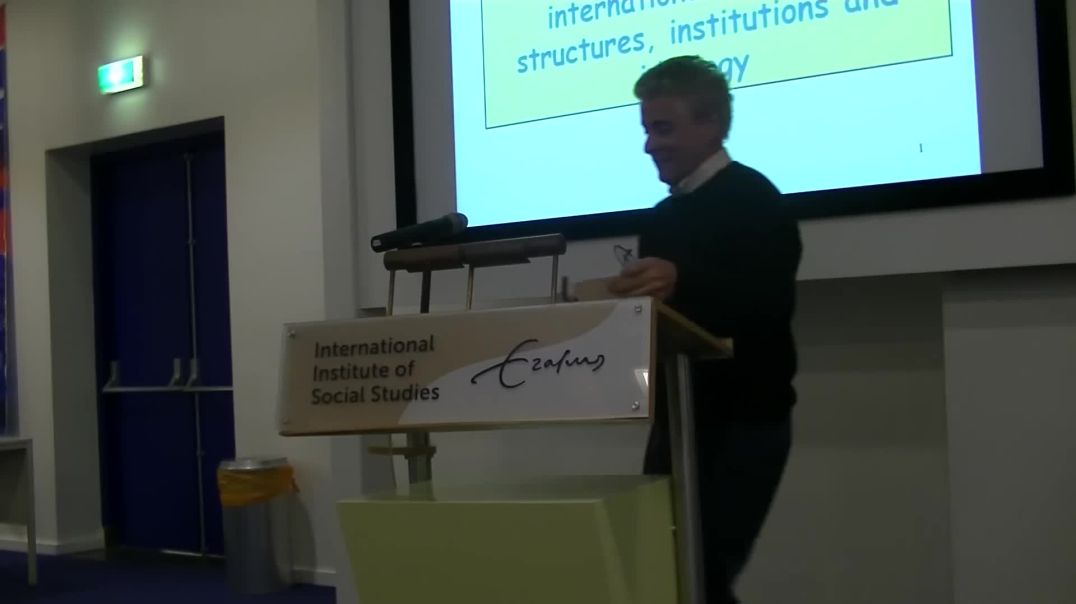Emperor Fasilides of Ethiopia: The Legacy of a Renaissance Monarch
Emperor Fasilides (also known as Fasil or Basilides) of Ethiopia was one of the most influential rulers of the Solomonic Dynasty, reigning from 1632 to 1667. His reign marked a turning point in the history of Ethiopia as he sought to restore the stability of the empire, strengthen the Ethiopian Orthodox Church, and transform the city of Gondar into a political and cultural capital. Often celebrated for his diplomatic tact and his vision for a unified Ethiopia, Emperor Fasilides left behind a complex legacy that continues to captivate historians and laypersons alike. This article delves into Fasilides' early life, political strategies, cultural contributions, and the socio-religious impacts of his reign.
The Historical Context
The Turbulent Times Before Fasilides
Before the rise of Emperor Fasilides, Ethiopia was experiencing a period of instability and turmoil. The preceding reigns were marked by conflicts involving Portuguese missionaries and Jesuit influence in Ethiopia, which led to a crisis within the Ethiopian Orthodox Church. Emperor Susenyos, Fasilides' father, had converted to Catholicism under the influence of Portuguese Jesuits, which created religious strife across the empire.
Emperor Susenyos' decision to embrace Catholicism met with fierce resistance from the Ethiopian people, who saw it as a betrayal of their traditional Orthodox beliefs. The civil unrest, revolts, and discontent among the population put immense pressure on the royal court. Ultimately, Susenyos chose to abdicate in favor of his son, Fasilides, to ensure stability and peace within the kingdom. It was against this backdrop that Fasilides assumed the throne, and he faced the critical task of restoring religious unity and reasserting the primacy of the Ethiopian Orthodox Church.
The Early Life of Fasilides
Fasilides was born around 1603, during a time of shifting allegiances and tensions between different religious factions within Ethiopia. As the son of Emperor Susenyos and Empress Wäld Sä'ala, Fasilides grew up observing the challenges of governance in a deeply divided country. His experiences during his youth would shape his commitment to reestablishing the Ethiopian Orthodox faith as the cornerstone of the nation's identity.
Fasilides spent his formative years under the tutelage of church scholars and advisors who nurtured a sense of loyalty to Ethiopia's traditions. He also witnessed the fallout of his father's religious policies, which undoubtedly informed his decisions when he became emperor. From an early age, Fasilides understood the importance of maintaining religious unity and respecting the customs of his people.
Ascension to the Throne
Coronation and Immediate Reforms
Upon his coronation in 1632, Emperor Fasilides' primary objective was to undo the damage caused by his father's policies and bring stability to the kingdom. One of his first acts as emperor was to repudiate Catholicism and expel the Jesuit missionaries from Ethiopia. This decision was welcomed by the Ethiopian Orthodox clergy and the general population, who saw it as a return to tradition and a rejection of foreign influence.
Fasilides also moved to restore the authority of the Ethiopian Orthodox Church, ensuring that it would be the guiding spiritual force for the kingdom. He convened church councils and worked closely with religious leaders to solidify the church's role in governance and cultural life. By reaffirming the supremacy of the Orthodox faith, Fasilides was able to mend the fractured social fabric of Ethiopia and win the support of the influential clergy.
Strengthening Central Authority
Another key focus of Fasilides' early reign was the consolidation of central authority. The Ethiopian Empire had long been characterized by a decentralized political structure, with regional nobles wielding significant power. Fasilides sought to strengthen the monarchy by curtailing the influence of these regional rulers and establishing a more unified state.
To achieve this, Fasilides implemented reforms aimed at centralizing administrative functions and reducing the autonomy of regional lords. He appointed loyal officials to key positions, ensuring that the interests of the monarchy were represented throughout the empire. By asserting control over regional governors and limiting their independence, Fasilides was able to create a more cohesive political entity that was better equipped to face both internal and external challenges.
The Founding of Gondar
Gondar: The New Capital
One of Emperor Fasilides' most enduring legacies is the establishment of Gondar as the capital of Ethiopia. Prior to Fasilides' reign, the Ethiopian court was largely itinerant, moving from place to place in search of resources and to maintain control over the vast territories of the empire. Fasilides recognized the need for a permanent capital that could serve as a political, economic, and cultural hub for the kingdom.
In 1636, Fasilides founded Gondar in the highlands of northwestern Ethiopia. The choice of location was strategic—Gondar was situated near major trade routes and was surrounded by fertile land, making it an ideal center for administration and commerce. By establishing a fixed capital, Fasilides was able to strengthen his control over the empire and provide a stable seat of government.
Architectural Legacy: Fasil Ghebbi
Fasilides' vision for Gondar went beyond simply creating a political center. He sought to establish a city that reflected the grandeur and power of the Ethiopian monarchy. To this end, he commissioned the construction of Fasil Ghebbi, a sprawling fortress complex that would become the heart of the city. Fasil Ghebbi, also known as the Royal Enclosure, featured a series of castles, palaces, and churches that showcased the architectural prowess of the time.
The castle of Emperor Fasilides, with its imposing stone walls and intricate design, remains one of the most iconic structures in Gondar. The architectural style of Fasil Ghebbi combined traditional Ethiopian elements with influences from Indian, Portuguese, and Arab architecture, reflecting the diverse cultural exchanges that had shaped the Ethiopian Empire over the centuries. Fasilides' construction projects not only reinforced his authority but also laid the foundation for Gondar's emergence as a vibrant cultural and intellectual center.
Religious Policies and the Restoration of Orthodoxy
Expulsion of the Jesuits
One of the most significant actions taken by Emperor Fasilides was the expulsion of Jesuit missionaries from Ethiopia. The Jesuits had arrived in Ethiopia during the reign of Emperor Susenyos, and their influence had grown as they sought to convert the Ethiopian population to Catholicism. Their presence, however, had been a source of deep resentment among the Orthodox clergy and the general populace.
Fasilides, recognizing the divisive impact of the Jesuits, acted swiftly to expel them from the country. In 1633, he issued a decree banning all Catholic missionaries and ordered the closure of Catholic churches. This move was widely supported by the Ethiopian people, who saw it as a restoration of their traditional faith and a rejection of foreign interference. By removing the Jesuits, Fasilides was able to restore the primacy of the Ethiopian Orthodox Church and mend the divisions that had plagued the empire.
Revival of the Ethiopian Orthodox Church
Emperor Fasilides was a devout adherent of the Ethiopian Orthodox Church, and he worked tirelessly to strengthen its influence throughout the empire. He provided generous patronage to the church, funding the construction and restoration of numerous monasteries and churches. Among his notable contributions was the construction of the Church of St. Mary of Zion in Axum, one of the holiest sites in Ethiopian Orthodoxy.
Fasilides also sought to enhance the spiritual authority of the church by fostering a closer relationship between the monarchy and the clergy. He convened religious councils to address theological disputes and ensure doctrinal unity within the church. By promoting the church's role in governance and emphasizing its importance in the daily lives of his subjects, Fasilides helped to solidify the church's position as a pillar of Ethiopian society.
Foreign Relations and Diplomacy
Relations with Neighboring Kingdoms
Emperor Fasilides' foreign policy was characterized by a desire to maintain Ethiopia's independence and protect its borders from external threats. He adopted a cautious approach to foreign relations, seeking to avoid entanglements that could undermine the stability of the empire. Fasilides was particularly wary of European powers, whose influence he viewed as a potential threat to Ethiopian sovereignty.
Fasilides focused on maintaining peaceful relations with neighboring kingdoms, including the Sultanate of Adal and the Kingdom of Sennar. He sought to establish diplomatic ties that would ensure the security of Ethiopia's borders and promote trade. By fostering stable relations with his neighbors, Fasilides was able to create a buffer against external threats and maintain the integrity of the Ethiopian Empire.
Isolation from European Powers
In contrast to his predecessors, Fasilides adopted a policy of isolation from European powers. The arrival of Portuguese missionaries and their attempts to convert the Ethiopian population to Catholicism had left a deep mistrust of European influence. Fasilides was determined to protect Ethiopia from foreign interference and preserve its cultural and religious identity.
To this end, Fasilides severed diplomatic ties with Portugal and refused to allow European missionaries to enter the country. He also limited contact with other European powers, focusing instead on strengthening Ethiopia's internal stability and maintaining its independence. This policy of isolation would continue for much of Ethiopia's history, helping to preserve its unique cultural heritage but also limiting its engagement with the broader world.
Cultural Contributions and Legacy
The Flourishing of Gondar
Under Emperor Fasilides' rule, Gondar became a thriving cultural and intellectual center. The establishment of a permanent capital allowed for the development of a vibrant court culture, with scholars, artists, and musicians flocking to the city. Gondar became known for its rich artistic and literary traditions, which were supported by the patronage of the emperor and the nobility.
Fasilides' reign saw the growth of Ethiopian literature, with religious texts, chronicles, and poetry being produced in abundance. The emperor himself was a patron of the arts, and his support for the church also extended to the production of religious manuscripts and the decoration of churches with elaborate murals and iconography. The cultural flourishing of Gondar during Fasilides' reign laid the groundwork for the city's emergence as a center of learning and artistic expression in Ethiopia.
Architectural Legacy
The architectural legacy of Emperor Fasilides is one of the most visible reminders of his reign. The construction of Fasil Ghebbi, with its impressive castles and palaces, stands as a testament to his vision for a unified and powerful Ethiopian state. The complex, which has been designated a UNESCO World Heritage site, continues to draw visitors from around the world who come to marvel at its grandeur and learn about Ethiopia's rich history.
Fasilides also commissioned the construction of a number of churches and bridges throughout the empire, further contributing to the development of infrastructure and religious institutions. His commitment to building and architecture not only enhanced the aesthetic appeal of Gondar but also helped to solidify the city's status as the political and cultural heart of Ethiopia.
The End of Fasilides' Reign and Succession
Final Years
The latter years of Emperor Fasilides' reign were marked by relative stability and peace. Having successfully restored the authority of the Ethiopian Orthodox Church, expelled foreign missionaries, and established a strong central government, Fasilides was able to enjoy a period of tranquility in his later years. He continued to oversee the development of Gondar and support the church, ensuring that the foundations he had laid would endure beyond his reign.
Fasilides died in 1667, having ruled Ethiopia for 35 years. His death marked the end of an era of restoration and consolidation, during which the Ethiopian Empire had regained its strength and unity. Fasilides was succeeded by his son, Yohannes I, who would continue his father's policies of supporting the Orthodox Church and maintaining the stability of the empire.
Legacy and Historical Significance
The legacy of Emperor Fasilides is one of resilience, cultural revival, and architectural achievement. His efforts to restore the Ethiopian Orthodox Church and expel foreign missionaries helped to preserve the religious and cultural identity of Ethiopia at a time when it was under threat. By establishing Gondar as a permanent capital, Fasilides laid the foundation for a new era of Ethiopian history, characterized by political stability and cultural flourishing.
Fasilides is remembered as a wise and capable ruler who navigated the challenges of his time with tact and determination. His reign is often seen as a turning point in Ethiopian history, marking the beginning of a period of renewed strength and unity. The architectural wonders of Gondar, particularly Fasil Ghebbi, serve as enduring symbols of his vision for a powerful and unified Ethiopia.
Conclusion
Emperor Fasilides of Ethiopia was a transformative figure whose reign had a profound impact on the course of Ethiopian history. Faced with the challenges of religious division and political instability, Fasilides worked tirelessly to restore the authority of the Ethiopian Orthodox Church, expel foreign influence, and strengthen the central government. His establishment of Gondar as the capital of Ethiopia not only provided a stable seat of power but also fostered a cultural renaissance that would leave a lasting mark on the country's history.
Fasilides' legacy is evident in the architectural splendor of Gondar, the resilience of the Ethiopian Orthodox Church, and the enduring sense of national identity that he helped to cultivate. His reign represents a pivotal moment in the history of Ethiopia—a time when the empire was restored to its former glory and set on a path of cultural and political renewal. Today, Emperor Fasilides is celebrated as one of Ethiopia's greatest monarchs, whose contributions continue to shape the nation's identity and heritage.








